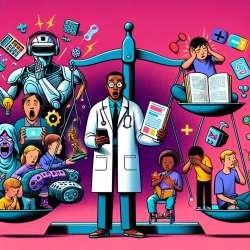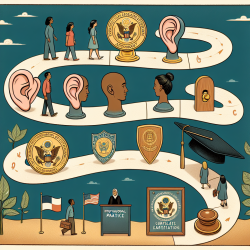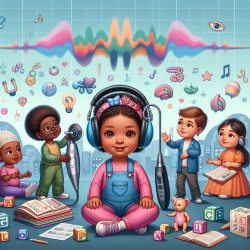As an educator and therapist, it's always exciting to explore new ways to support our students, especially those with dyslexia. Recent research, however, has thrown a curveball into some of our most promising strategies. The study titled Neither action nor phonological video games make dyslexic children read better (Luniewska et al., 2018) reveals some surprising insights that can help us refine our approach to dyslexia intervention.
In this study, researchers tested the effectiveness of action video games (AVG) and phonological non-action video games (PNAVG) in improving the reading skills of dyslexic children. They found that neither type of video game significantly improved reading skills compared to a control group that received no special training. This is crucial information for us as practitioners because it challenges the assumption that video games can be a quick fix for reading difficulties.
Key Takeaways for Practitioners
Here are some key takeaways from the study that can help us improve our intervention strategies:
- Focus on Proven Methods: While the allure of video games as a therapeutic tool is strong, this study suggests we should focus more on proven methods like traditional phonological awareness training and one-on-one reading interventions.
- Individualized Plans: Dyslexia manifests differently in each child. Tailoring interventions to meet individual needs, rather than relying on generalized tools like video games, may yield better results.
- Further Research: The study underscores the need for more extensive research into alternative methods for improving reading skills in dyslexic children. Encouraging collaboration between educators, therapists, and researchers can lead to more effective solutions.
What Can We Do Instead?
Given the study's findings, here are some alternative strategies to consider:
- Enhanced Phonological Training: Incorporate phonological training that involves direct interaction with text. Activities like phoneme segmentation, blending, and manipulation are shown to be effective.
- Multi-Sensory Learning: Utilize multi-sensory approaches that engage visual, auditory, and kinesthetic learning pathways. Programs like Orton-Gillingham are well-regarded for their effectiveness.
- Parental Involvement: Encourage parents to be actively involved in their child's reading development. Providing them with resources and training can make a significant difference.
Encouraging Further Research
This study serves as a reminder that the field of dyslexia intervention is still evolving. We must stay informed about the latest research and be willing to adapt our methods accordingly. Collaboration with researchers can help us develop more effective strategies and ensure our students receive the best possible support.
To read the original research paper, please follow this link: Neither action nor phonological video games make dyslexic children read better.










